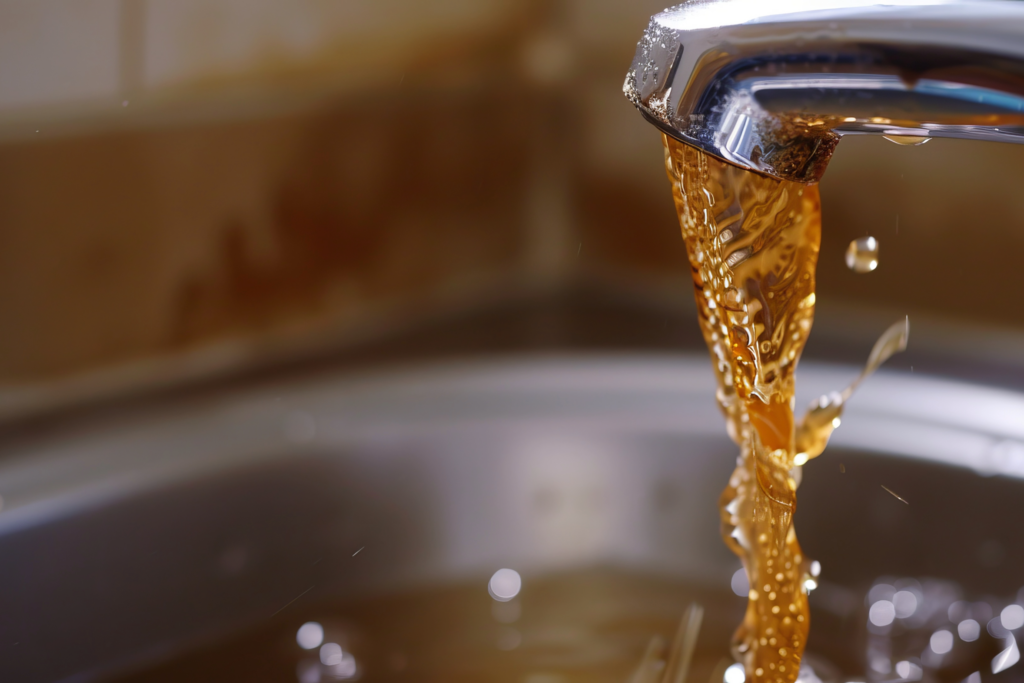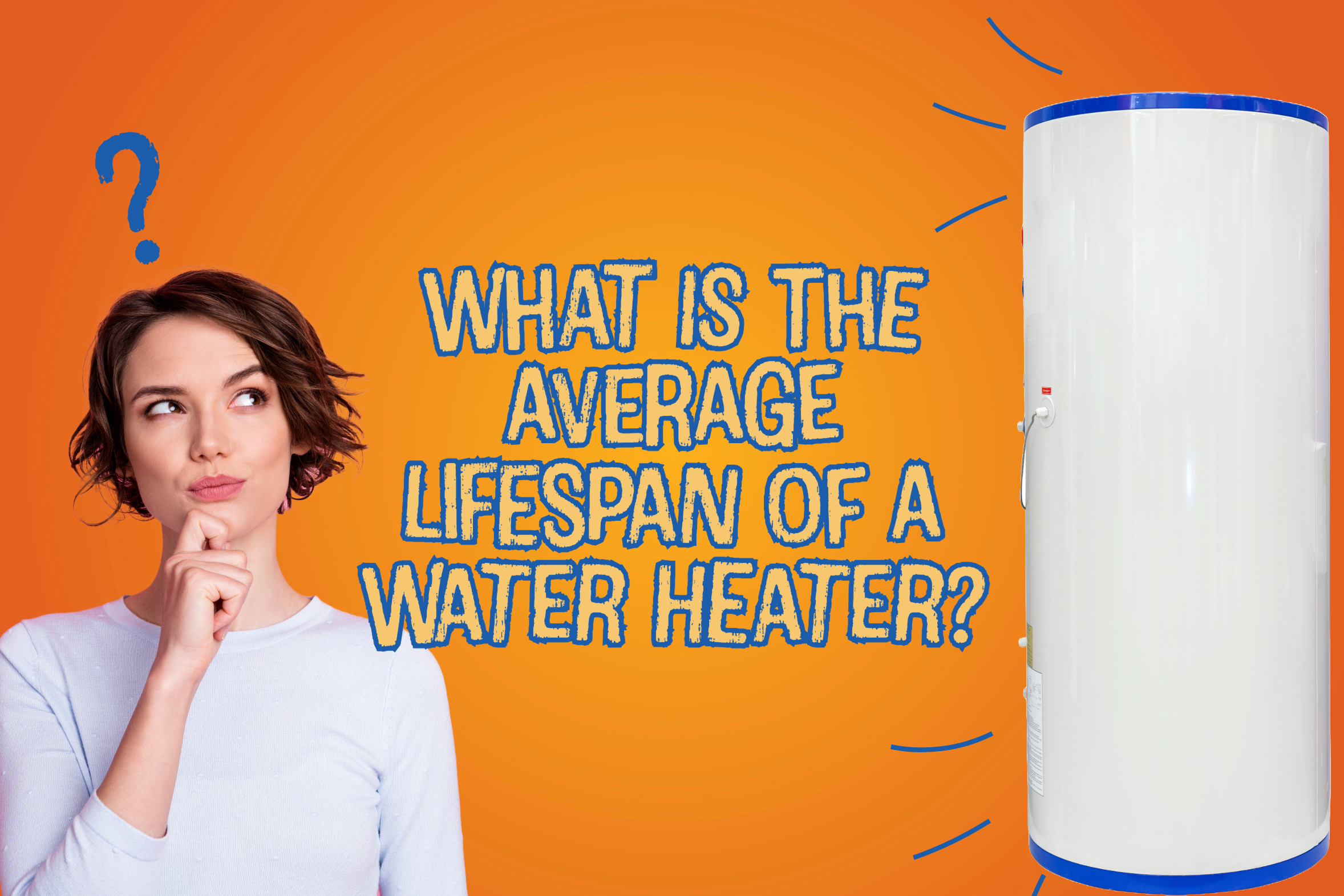Experiencing issues with your water heater? You’ve come to the right place! At Beavercreek Plumbing & Drain, we understand how overwhelming this can be, especially if it’s your first time dealing with this kind of problem. What questions should you ask? Why might it need replacing? How do you decide between repair and replacement? These are all crucial questions. However, if you’re new to this situation, you might not know where to start. As your trusted plumbing partner, Beavercreek Plumbing & Drain is here to provide answers and guide you through every step.
Our commitment is to make all home-related tasks seamless and stress-free for you. Let’s start with the basics. One of the most common questions we receive is: How long should a water heater last?
What Is the Average Lifespan of a Water Heater?
A good rule of thumb for water heaters is an 8-year lifespan. Some might last longer, typically between 8 and 10 years. If your water heater has reached the 10-year mark, it’s likely nearing the end of its service life. Planning ahead is crucial to avoid unexpected breakdowns. No one likes to be caught off guard.
What Are the Factors That Affect the Lifespan of a Water Heater?
It’s important to understand that several factors can influence the longevity of your water heater:
- Water Usage: Your water usage significantly impacts the lifespan of your water heater. While you shouldn’t reduce your water consumption solely for this reason, it’s a factor to consider.
- Regular Maintenance: Proper care extends the life of your unit. Regular checkups and essential water heater flushes are crucial. Skipping these can accelerate wear and tear.
- Water Quality: The quality of your water, whether hard or soft, affects your unit. Minerals like calcium and magnesium can lead to buildup, impacting both lifespan and efficiency.
- Installation Quality: Incorrect installation can cause faster wear and tear, damage, or even pose safety hazards. Proper installation is essential for optimal performance and safety.
- Equipment Quality: Choosing a high-quality brand for this heavily used appliance is vital. The materials in water heater tanks and heating elements directly impact functionality and longevity.
What Are the Signs That You May Need to Replace Your Water Heater?

- The Water Is Rusty – One clear indication that your water heater may be nearing the end of its lifespan is discolored or “rusty” water running from your faucet fixtures. Similarly, if the water from your plumbing fixtures has a metallic odor or taste, it’s time to explore your replacement options.
- The Water Is Not Getting Hot – If your water heater is struggling to meet your household’s hot water needs, this could indicate sediment buildup or wear and tear, suggesting that a replacement might be necessary.
- The Water Is Leaking or Pooling Around the Base of the Unit – A leaking water heater typically results in water pooling around the unit’s base. You should have a professional diagnose the issue promptly; depending on the source, a replacement may be needed.
- The Water Heater Is More Than 10 Years Old – The age of a water heater is a significant factor in determining whether it should be replaced. If your unit is over 10 years old, a replacement is likely the best course of action.
- The Water Heater Requires Frequent Repairs – While occasional repairs are sometimes feasible, frequent repairs are a warning sign. Continuously opting for repairs can lead to spending more money than the unit is worth compared to investing in a top-rated, energy-efficient model.
What Type of Maintenance Can You Do to Prolong Your Water Heater’s Lifespan?
Since water heating accounts for an estimated 18% of a household’s energy expenses, ensuring your water heater is up-to-date and running smoothly is crucial. By keeping up with regular maintenance, you can help your water heater operate at its peak performance and extend its lifespan.
Recommended water heater maintenance includes:
- Flushing Your Water Heater: Sediment buildup can cause your system to overheat and lead to other issues, shortening its lifespan and resulting in costly repairs.
- Avoiding High Water Temperatures: Excessively high-temperature settings can wear down your water heater faster, thus reducing its lifespan.
- Preventing Rust Buildup on the Exterior: Rust on the exterior of your unit can decrease its efficiency and lifespan.
- Keeping Up with Annual Maintenance: Don’t skip your annual plumbing inspections, even if they seem unnecessary. Regular inspections ensure everything is running as it should be. A licensed plumber can catch minor problems early, preventing them from evolving into significant plumbing issues.

Keeping track of your water heater’s age is essential for planning and making informed decisions. Need help determining its age or perhaps looking for a free water heater estimate for a replacement? We offer comprehensive services to assist you. Whatever your needs, our expertise ensures you get the best value and quality.
You can count on Beavercreek Plumbing & Drain for all your plumbing needs! Call us today at (937) 404-6575, or schedule an appointment online now by clicking here!




